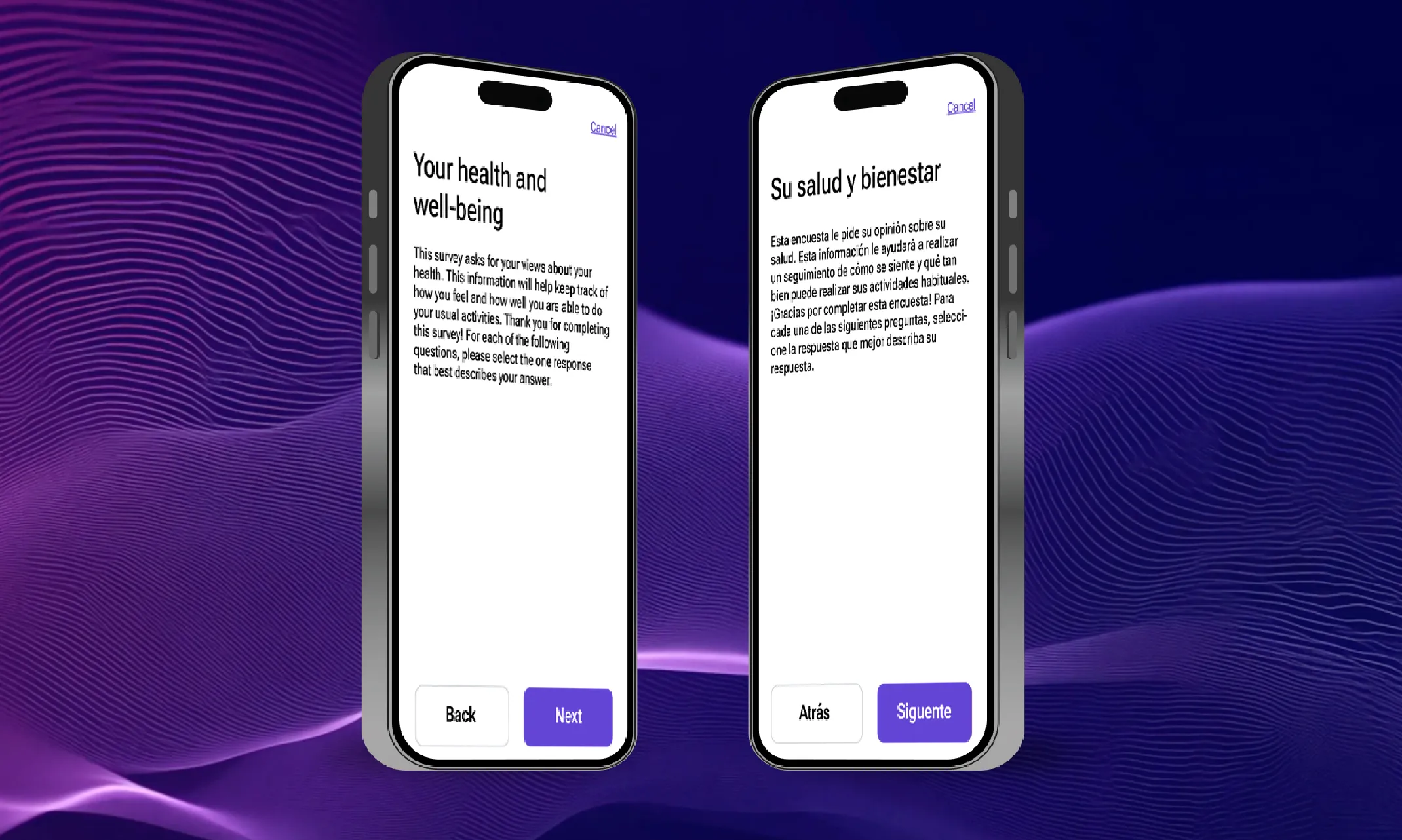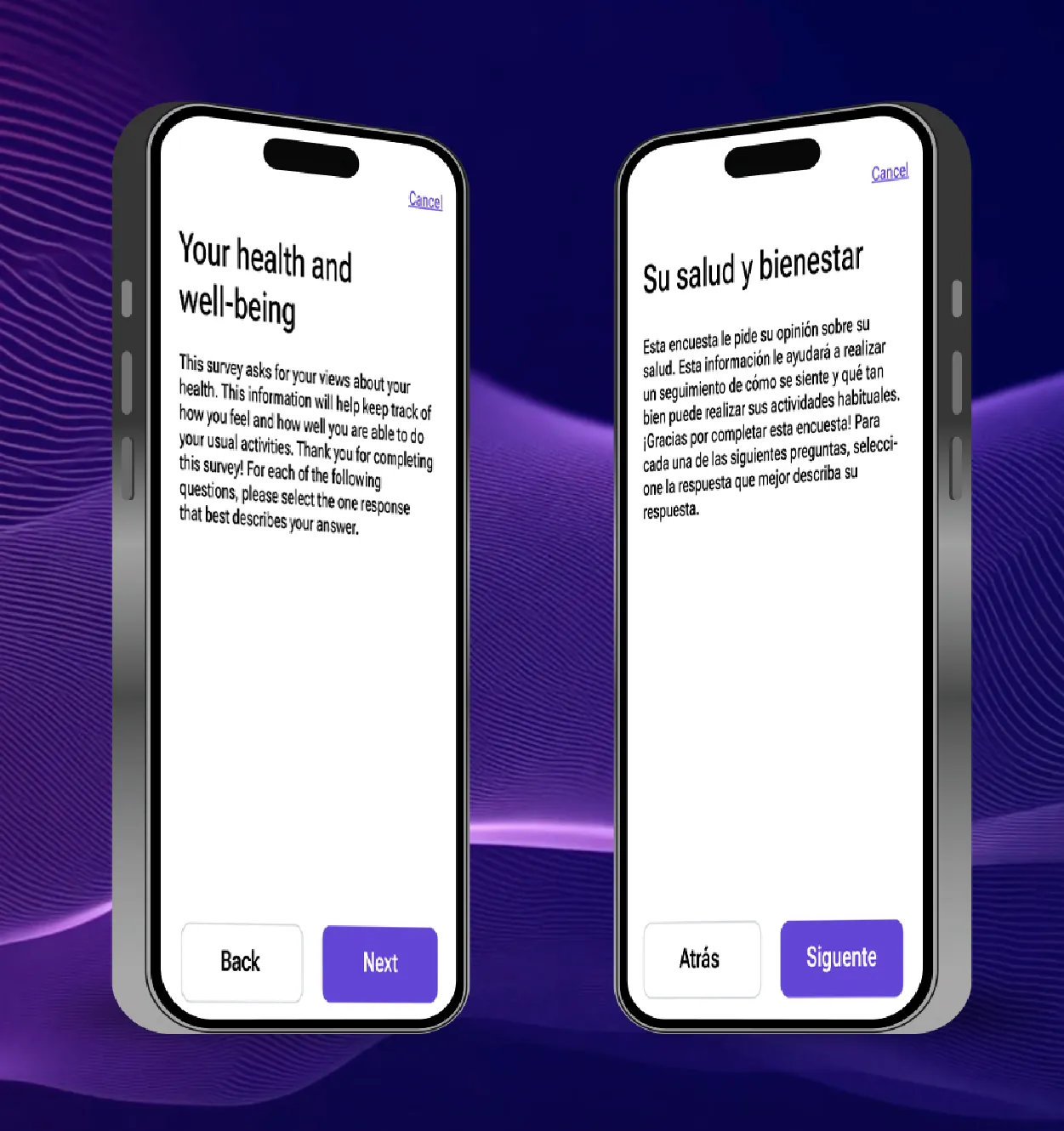eCOA


Everest analysis: How Medable eCOA solves speed, patient experience, and customer needs
eCOA has moved from a supporting tool to a foundational pillar of modern clinical trials, and Everest Group agrees. In its inaugural eCOA Products PEAK Matrix Assessment, Everest named Medable a Leader, citing strong market impact, accelerated timelines, and a platform built for real-world trial complexity. As the eCOA market surges toward nearly $1B in value, this recognition underscores how speed, patient experience, and AI-driven innovation are reshaping how trials are designed, launched, and scaled globally.


Playing catch-up: FDA wants “patient’s voice” ePRO in your oncology trial
For years now, the FDA has been making one point crystal clear to sponsors and CROs across our industry; they want the patient voice incorporated whenever possible in oncology trials.
The FDA's initiative is driven by the recognition that a patient's personal experience with a disease and its treatment is a unique and essential measure of a medical product's benefit and risk.
- Rationale: The FDA explicitly states that "patients provide a unique perspective on treatment effectiveness" and "some treatment effects are known only to the patient." Outcomes that truly matter to patients, such as functioning, quality of life, and the burden of side effects, are often best measured directly by the patient.
- Mandate: The Patient-Focused Drug Development (PFDD) effort, codified in part by the 21st Century Cures Act, requires the inclusion of such patient experience data in clinical research.
- Guidance series: To formalize this approach, the FDA has released a series of methodological guidance documents (the PFDD Guidance Series) that outline how stakeholders should collect, submit, and use patient input to inform medical product development.


Medable oncology solutions
Discover how Medable’s AI-powered oncology platform simplifies complex cancer trials by integrating eCOA, ePRO, and eConsent solutions—reducing trial time, improving patient retention, and enhancing data quality for faster, more efficient research.


Six steps to help you choose the right clinical trial partner
“This year, we’ve decided to stick to paper. We know what we’re getting and we’ve always done it this way.”
That was the unwavering response from a clinical operations lead at a pioneering biotech when asked why they still relied on paper diaries for patient-reported outcomes.
Despite the growing complexity of global trials, the promise of real-time data, and the surge of digital capabilities available today, some organizations have held tight to a method of clinical trial conduct that’s increasingly as outclassed as it is outdated.
It’s well known that individuals and organizations believe that change can be daunting, stressful, and difficult, especially when the old way is familiar and entrenched. However, much like anything else, having a partner who can help guide you through the process is massively important. But, how do you find the right partner for your trials?
Before locking in a vendor, organizations must engage in a deliberate process to assess their needs, align stakeholders, and set the foundation for long-term success. This blog explores the critical steps sponsors should take before selecting a digital partner, using insights and frameworks drawn from Medable’s therapeutic area standards and industry best practices.


From bottlenecks to breakthroughs: How AI is transforming translation timelines
According to ClinicalTrials.gov, there are 3,046 multi-country trials being conducted this year. While many trials remain localized within a single country, there has been a definitive movement towards conducting trials in multiple countries, especially for larger, later-stage trials. This is driven by the positives that multi-country trials offer, like faster patient recruitment, lower costs in some regions, and the need for diverse patient populations.. However, behind the scenes, a critical bottleneck has been slowing many trials down. This bottleneck is the translation process that’s required to make trials work across multiple languages, locales, and regulatory bodies/organizations.


Case study: Removing translation bottlenecks with AI
Traditionally, translations and language migration create significant bottlenecks on the path to trial study go-live. The process is traditionally manual, linear, and resource intensive. To address these challenges, Medable partnered with Lionbridge, a leading translation services company to compare the status quo translation process against an AI-enabled approach powered by both companies’ proprietary new AI tools.


Case Study: Medable, CRO, & pharma partner to accelerate clinical trial deployment at scale
A top-3 contract research organization (CRO) and a top-10 pharmaceutical company partnered with Medable to help accelerate the speed, scale, and standardization of their eCOA trials.
The two organizations had been hampered by lengthy configuration timelines, inconsistent designs across studies, and siloed processes between sponsors and their CRO partners.
By centralizing the sponsor’s preferred instruments and configurations into a reusable digital library, Medable enabled the CRO to rapidly accelerate its portfolio development and initiate new studies without starting them “from scratch.”
Complete the form to get your copy of the case study and see how we enable rapid acceleration for CROs.


Recapping DIA 2025
The 2025 Drug Information Association (DIA) Global Annual Meeting, held in Washington D.C., is beginning to wind down. As always, the conference has left a clear vision for the future of clinical trials. one defined by groundbreaking innovation, unprecedented global collaboration, and a profound commitment to patient well-being. This year's conference underscored key themes that are shaping the landscape of medical product development, with Artificial Intelligence (AI) and Real-World Data (RWD) taking center stage.


Drive scale with total control: Medable's new CRO partner program
What does it mean to do the heavy lifting?
In clinical research, it means assisting with research and development of new drugs alongside pharmaceutical and biotechnology companies, helping them complete the routine work that turns the gears to make new medicines.
Within pharma, contract research organizations (CROs) are indispensable partners in the advancement of clinical research who manage the complexities of clinical trials from protocol design to regulatory closeout, handling tasks like trial design, patient recruitment, data management, and regulatory submissions.
As a result, CROs have become indispensable partners in the advancement of clinical research who significantly contribute to our industry’s development of groundbreaking treatments, and human health.
However, the weights and the lifting methods have been changing. As Boston Consulting Group noted in their 2024 Nature article, clinical trials are becoming more complex. As a result, CROs face increasing pressure to deliver more with less.
Recognizing their importance in our mission and vision, Medable is excited to announce the launch of our comprehensive CRO partner program, designed to be a game-changing engine for growth and control in the clinical research industry.


Accelerating oncology research: Digital strategies for modern clinical trials
Learn how digital tools ease oncology research for all stakeholders while accelerating the pace of research with this whitepaper.


Case study: Medable reduces trial build from weeks to days
A top global clinical research organization (CRO) partnered with Medable to transform its approach to clinical trial building. Recognizing the inefficiencies in traditional build processes that often “take weeks,” the client leveraged Medable’s Studio platform with its latest AI capabilities to dramatically accelerate timelines, enhance transparency, and improve quality.


No more back and forth: Building eCOAs right the first time
Recently, Medable worked with a leading market research consultant to identify the pains and processes that sponsors and CROs encounter when building trials. Of the many that were presented, one issue kept reappearing, the back and forth processes for building COAs.
This feedback was instrumental in the development of Medable Studio, which was built to simplify the study build process, take eCOA off the critical path, and give sponsors and CROs total control over the trial build process.


Why ePROs in oncology are perfect for capturing the patient’s voice
Here are two statistics that may surprise you.
Number one, according to the WIRB-Copernicus Group, the number of oncology trials has skyrocketed over the last decade, almost doubling the number of all other therapeutic areas combined.
Number two, between 2010 and 2020, only 9 out of 108 FDA-approved oncology drugs, a mere 8.3%, included electronic patient-reported outcomes (ePROs) in their labeling.
Clearly, ePRO adoption is lagging in oncology trials. This comes despite recent guidance from the FDA (in 2021 and 2024) explaining how sponsors can use these technologies to ease trials for themselves and their patients.




